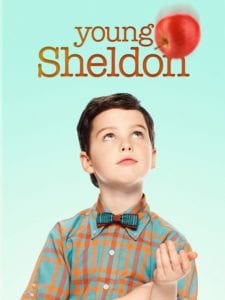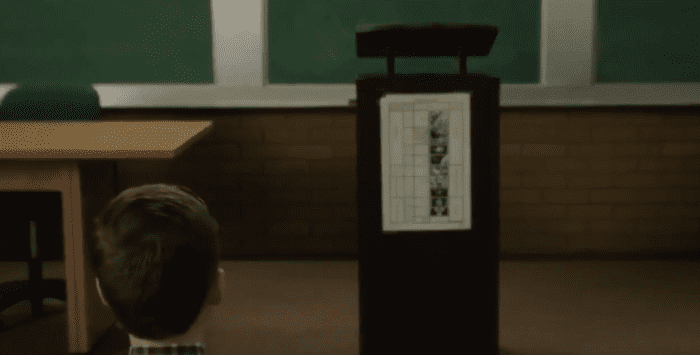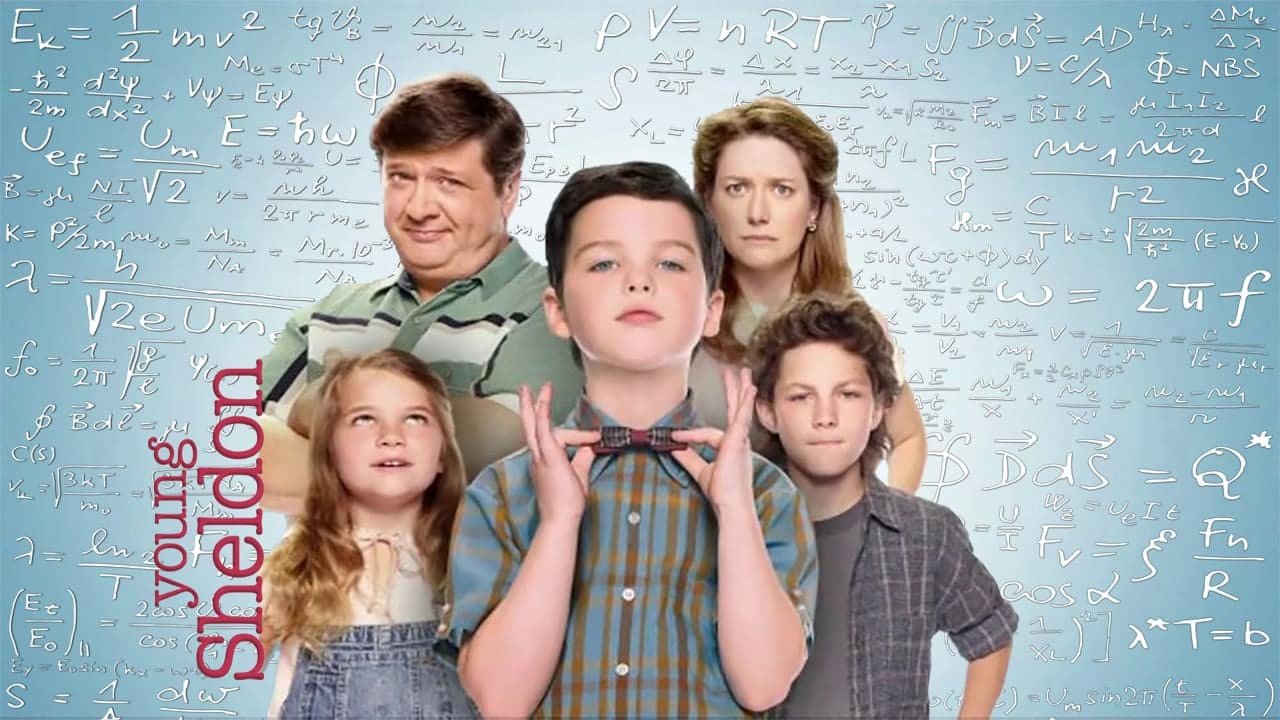Plagiarism in Pop Culture: Young Sheldon
When authorship and attribution comes to Young Sheldon...

Young Sheldon is a prequel/spin-off of the popular TV “nerdy” sitcom The Big Bang Theory. The show follows the trials and tribulations of, predictably enough, a young Sheldon as he tries to make his way as a 9-year-old genius attending high school and, by the third season, college.
The show also focuses heavily on Sheldon’s family, which is a far more typical than their genius member. Though Sheldon is a true mastermind of physics and sciences, he is much less skilled in the social arts. Much like his Big Bang Theory character, he is blunt, offputting and prone to missing social cues.
But when you have a show about a socially-awkward now-10-year-old making his way through secondary education, it’s pretty clear that plagiarism is going to become a topic at some point.
However, Young Sheldon does something very interesting. Not only is Sheldon not the one accused of plagiarism, but the story actually stumbles upon a very realistic and even common scenario that researchers face when it comes to attribution and research.
To that end, let’s take a look at Episode 17 (and to a lesser extent 18) of season three of Young Sheldon. Entitled An Academic Crime and a More Romantic Taco Bell it certainly delivers on at least one of those two promises.
Content Warning: Spoilers for Young Sheldon Season 3, Episodes 17 & 18
The Plot

The episode begins with Sheldon eagerly awaiting a lecture from his physics professor Dr. John Sturgis. However, when Dr. Sturgis doesn’t show up Sheldon goes to look for him and finds him in his office excitedly working on a new research paper.
Dr. Sturgis gives Sheldon a copy of the paper to read and Sheldon takes to it eagerly, even insisting on reading it in a car, even though reading in a moving vehicle causes him to vomit… repeatedly.
However, after reading it, Sheldon notices a serious problem with the paper, namely in the mass of the neutrinos. After being told by his dad to “not be rude” to Dr. Sturgis, Sheldon calls him up and tries to sugarcoat the news with no success.

Later in the episode, Sheldon calls back a now downtrodden Dr. Sturgis to say that he might have a solution to the problem. After a few minutes of back and forth, the two resolve the problem to their mutual satisfaction. This prompts Dr. Sturgis to rewrite the paper. However, when he tells Sheldon this, Sheldon immediately assumes that he is being given co-author credit for his contributions.
However, Dr. Sturgis says that he has worked on the paper for years and that he doesn’t feel it’s appropriate to put Sheldon’s name on it. Sheldon insisted that he helped with it but Dr. Sturgis argues he didn’t co-write the paper. Instead, Dr. Sturgis says that he’s giving Sheldon a “special thanks in the footnotes”.

This, however, is not good enough for Sheldon, who accuses Dr. Sturgis of trying to “rob him blind”. Dr. Sturgis responds by accusing him of being a baby (an unusual move given he’s arguing with a 10-year-old). Sheldon storms off but tries to convince his grandmother to date Dr. Sturgis again and break his heart for him.
Instead, Sheldon phones Dr. Linkletter, Dr. Sturgis’ colleague, and tells him that Dr. Sturgis has stolen his work. Dr. Linkletter initially says that it’s “quite the allegation” but eventually sides with Dr. Sturgis when he hears the full story. Sheldon insists on talking to his supervisor but Dr. Linkletter asks to talk to Dr. Sturgis before he does so.

That conversation takes place off-camera and the episode ends with Dr. Sturgis calling Sheldon, asking “How dare you accuse me of plagiarism?” After a brief conversation, Dr. Sturgis says he doesn’t want to see Sheldon in his class anymore and the episode cuts to black.
In the next episode, Sheldon’s mom not only pulls him from the class but from college altogether, saying that he isn’t mature enough for the environment. However, over the course of that episode, Sheldon sees the mistake he made and agrees to apologize to Dr. Sturgis, eventually resulting in him going back to college.
Understanding the Plagiarism
With this episode, there really isn’t any plagiarism to understand. Dr. Sturgis didn’t commit any plagiarism though it is easy to see why Sheldon, especially given his relative immaturity, would see it as such.
A great deal of work goes into an academic paper. Dr. Sturgis himself said that he had been working on it for years and that, while he was grateful for the help Sheldon provided, it didn’t rise to the level of co-authorship. This was supported by his colleague, Dr. Linkletter.

Even if Sheldon can argue that he “fixed” Dr. Sturgis’ paper, he didn’t write a single word of it nor did he perform any of the research that took place in it. Sheldon deserves credit for his contributions and a special thanks is a pretty fair way to do it in this case.
But, for Sheldon, he felt that he was being ignored, that his contributions were being swept aside, even though they were being cited in accordance with fairly standard practices. That’s something he might have understood better if he had written and published research of his own.

However, it’s difficult to fault Sheldon. He’s looking at this exactly as a 10-year-old would. He may be at the upper tier of society when it comes to physics, but he’s still a kid. He worked on something and didn’t feel he was given credit for it, his response was perfectly normal for that.
Everyone in this episode is doing what they think is right, the conflict arises from Sheldon’s inexperience in this area. That’s a kind of experience that a 10-year-old just can’t have.

However, what I found most interesting about this episode is that it actually looks into a very common issue with research: Determining authorship.
Though this case, to my mind, is more clear-cut, there are many that aren’t. The decision to include or omit authors on a paper can be one of the most important parts of publishing it. There’s often pressure to include authors that don’t really deserve it so they can have publication credits and there’s often pressure to exclude authors to avoid conflicts of interest or just increase the share of credit given to the remaining ones.
This story has almost certainly played out in real life many, many times. However, instead of a 10-year-old boy it was likely a colleague or grad student. Though these characters made the right decision, that’s not always the case.
Bottom Line
With research, who to give credit to and how is always a thorny issue. This is because, most of the time, research is a very collaborative process. Researchers are constantly asking colleagues for suggestions, pulling from previous work and getting help from wherever they can.
Citation is important, especially since it often plays directly into the validity of the research, but that doesn’t make it simple.
This episode actually did a very good job showcasing those complexities through the eyes of a 10-year-old genius. It’s not a way I would have thought to showcase the problem, but it was remarkably effective.
So, a big thanks to Young Sheldon for giving one of the more interesting and useful examples of plagiarism in pop culture.
More Plagiarism in Pop Culture (In Reverse Order)
Want more Plagiarism in Pop Culture? There Are 40 others to check out!
- Ferris Bueller
- Randy Feltface
- Bob’s Burgers
- Columbo (Part 2)
- Columbo (Part 1)
- Death in Paradise (Part 2)
- American Auto
- Saturday Night Live
- The Conners
- Death in Paradise (Part 1)
- Lobachevsky
- Back to School
- The Golden Girls
- Young Sheldon
- The Goldbergs (Part 2)
- King of the Hill (Part 2)
- Yesterday
- King of the Hill (Part 1)
- The Kids Are Alright
- Big Fat Liar
- Coco
- Re-Animator
- Elementary
- Instinct
- Fresh Off the Boat
- The Goldbergs (Part 1)
- Lou Grant
- Star Trek: The Original Series
- Arthur
- Criminal Minds
- Mystery Science Theater 3000
- Cheers
- WKRP in Cincinnati
- Boy Meets World
- Law & Order: Criminal Intent (Part 2)
- Law & Order: Criminal Intent (Part 1)
- Jane the Virgin
- The Waltons
- Leave it to Beaver
- The Facts of Life
Want to Reuse or Republish this Content?
If you want to feature this article in your site, classroom or elsewhere, just let us know! We usually grant permission within 24 hours.
